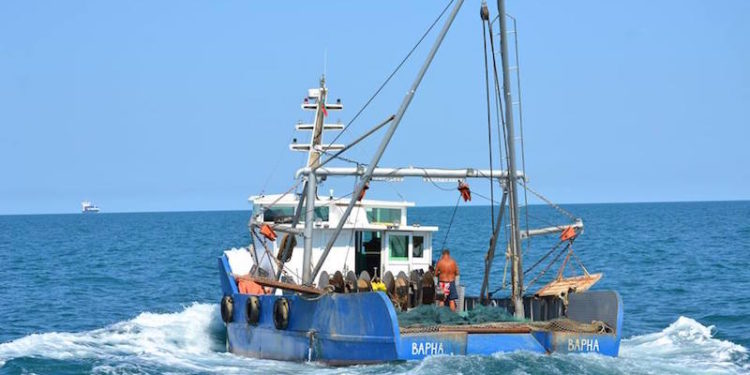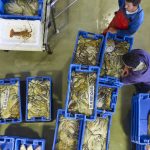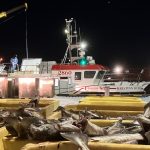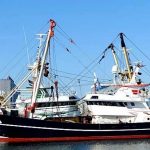Bulgarian fisherman Emil Milev’s passion for fishing started with a trip out of curiosity back in 1993. Now he runs three trawlers fishing in Black Sea waters.
‘There are no fishermen in my family, but I grew up in Asparuhovo, which is Varna’s fishing district. To begin with I went to sea out of curiosity because I wanted to catch some dogfish – and I have been fishing ever since.’
He spent seven years working on boats that weren’t ideal, and then decided that the way forward was to build his own boat while he was still working on other people’s boats. Now he runs three 16 metre boats.
‘It took me five years to build the boat, and when Lavrak was finished is when I would say that my own progress in fishing really began.’
The main target species are red mullet, bluefish, dogfish, scad, turbot and rapana (Black Sea topshell).
Fishing is from 20 metres down to a depth of 90-100 metres, but there is no fishing in deeper water due to the particular conditions in the Black Sea, specifically the low oxygen levels in deeper water.
‘There are around a hundred fishing vessels over 12 metres in the fleet, plus around a thousand smaller boats, and from what I have seen, there are around five hundred of these 6-8 metre boats that fishermen make a living from.’
‘My opinion is that there are opportunities to invest in new fishing vessels, and to stay competitive, we have to do this. Older boats don’t fish effectively, and they don’t have the storage capacity for catches that guarantee a better price for our fish.’
‘I’m sure that fishermen in every country encounter difficulties – and we are no exception,’ he said, commenting that the problems the Bulgarian fishermen face are related to the lack of a properly managed market for fish, a shortage of markets near fishing ports and the poor facilities available in fishing ports.
He commented that in a fishery with only five or six main species, all of which are vital for the fishing sector to remain competitive, the fact that restrictions apply only to Romanian and Bulgarian fishermen puts them at a disadvantage, and with Romania and Bulgaria accounting for only 5% of Black Sea catches, these restrictions could lead to widespread bankruptcies.
‘I would urge the authorities to think harder before proposing the next round of restrictions,’ Emil Milev said, adding that at a local level, the extensive protests by Bulgarian fishermen were successful in that they served to unite the fishing community.
Take a look at the latest issue of Hook and Net for the full interview with Emil Milev.









